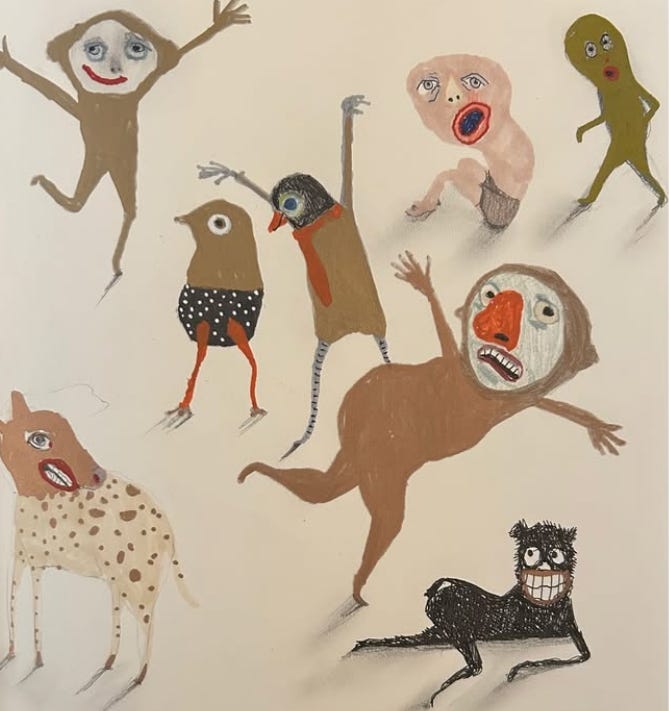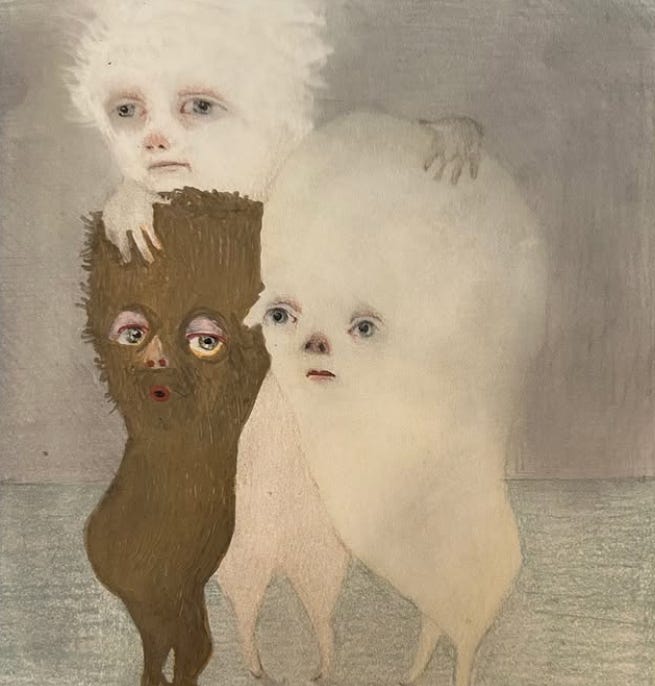Imagine this: It’s a quiet evening, and you’re scrolling through your phone, aimlessly tapping through a decade of photos you’ve barely glanced at since the moment you took them. Each swipe conjures a fragment of your life: your move back to Florence in 2021, your dog’s first steps at home, that weirdly artistic coffee you thought was worth documenting. A pang of nostalgia hits, but also something else: a faint sense of overwhelm. You’re drowning in memories, each one tagged, timestamped, and seemingly saved forever.
For most of human history, memory was a communal affair. Before the written word, societies preserved their knowledge and culture through oral traditions. Stories, songs, and rituals weren’t just entertainment, they were how people remembered who they were. Memory wasn’t stored in objects; it lived in the shared minds of the group. Then came writing, printing presses, and, much later, photography and film. Each innovation allowed us to externalize memory, storing pieces of our lives outside our minds. What started with clay tablets and parchment led to floppy disks, USB drives, and now the “cloud” (last I looked, we used floating clouds in comic books to denote thoughts). Today, you can fit the collective memories of a lifetime into your pocket.
This shift from shared, selective memory to individual, infinite archives has changed not just what we remember, but how we live. Philosophers have long debated the role of forgetting in human experience. Friedrich Nietzsche, for instance, warned that an “excess of history” could weigh a person down, likening it to “a burden too heavy for man to bear.” Without the ability to forget, he argued, we become paralyzed by the sheer weight of the past.
Modern life has taken Nietzsche’s warning and heightened it. Thanks to our interconnected, digitized world, even the smallest details of our lives seem etched into algorithmic eternity. The trivial and the significant coexist, creating a kind of digital sediment where everything is remembered, but nothing feels meaningful.
But does remembering everything make us happier? Research suggests not. Studies show that when we’re bombarded by memories, it can lead to decision fatigue, emotional overwhelm, and even a distorted sense of self. A 2017 study published in the journal Memory found that the overabundance of digital archives contributes to cognitive overload, making it increasingly difficult for individuals to prioritize and access significant memories1. The study highlights that the digitalization of memory alters the way we engage with our past, often leading to feelings of overwhelm and detachment. After all, we’re not static beings. Who you were five years ago might not align with who you are today and constantly confronting your past can feel like staring at a ghost in the mirror.
I’ve been thinking about this topic for a while now, though it was exacerbated just last month. We spent Christmas back in Italy, where I lived for a good chunk of my childhood/adolescence. It was an especially cold day, so I decided to look through the library, as you do, when I found our photograph albums, filled as they tend to be with images. Of myself, my parents as children, and my grandparents. What struck me wasn’t just the photos themselves but the strange, almost existential experience of seeing someone else, captured in time, transported to the future as if it weren’t a camera that had taken their picture, but a time machine. My grandmother, dead now, was very much alive in those photos, posing in front of a farmhouse. My parents… don’t get me started on my parents, smiling in school uniforms much younger than I am today. Is it natural to be, albeit for a moment, older than your parents? Those images serve as enduring fragments of their identity, tethered to time yet resistant to its erosion.
Our brains evolved to remember selectively. We’re hardwired to forget most of what happens to us because forgetting helps us focus on the present. Forgetting isn’t a failure of memory; it’s a feature2. Memory is less about preserving every detail and more about distilling information to guide future decisions. In other words, we forget in order to grow. But in the digital age, we’ve outsourced forgetting to machines. Our devices remember birthdays, grocery lists, everything you let it (and more). This omniscience might feel convenient, but it’s also unnatural. Without the natural disintegration of memory, we’re left sifting through mountains of mental clutter, intuitively unsure of what actually matters.
Instead of cherishing a handful of special memories, it seems like we are drowning in a sea of minutiae. And paradoxically, the more we remember, the less we value each memory.
Martin Heidegger’s concept of being-towards-death offers profound insight into the modern struggle with memory. He suggested that by fully confronting the finite nature of life, we are better equipped to engage authentically with the present. For Heidegger, memory isn’t about preserving every detail or clinging to the past; it’s about using the awareness of our mortality to deepen our experiences in the here and now. Photographs and digital records often work against this principle, creating an illusion of permanence. They freeze time, offering the comfort of revisiting past moments while subtly detaching us from the fleeting, lived experiences that make life meaningful. When we rely too heavily on external devices to store our memories, we risk losing the immediacy of presence that Heidegger so valued. We may find ourselves scrolling through endless archives rather than truly engaging with the world around us.
Heidegger would argue that this externalization of memory distracts us from what really matters: the authentic moments that resonate deeply because we experience them fully in their transience. A dinner shared with loved ones or watching fireworks light up the sky as the clock strikes midnight (no, you don’t need to take 10 videos), these moments gain meaning precisely because they are temporary. By intentionally forgetting what doesn’t matter we make space to embrace the profound. By recognizing that life itself is finite, we can approach each moment with the depth and presence it deserves. Memories born of such authenticity carry an emotional weight that no algorithm can replicate.
All in all, the age of infinite memory offers incredible opportunities, but it also comes with profound challenges. By clinging to every detail, we risk drowning in the noise of our own past. But if we embrace the art of forgetting, we can rediscover the beauty of memory as it was meant to be: fleeting, precious, and deeply human.
Shields, Corinna. "Digital Archives and Cognitive Overload: Prioritizing Memory in the Modern Age."
Richards, Blake A., and Paul W. Frankland. "The Persistence and Transience of Memory."







So full of wisdom, as always. Loved this & miss you! <3